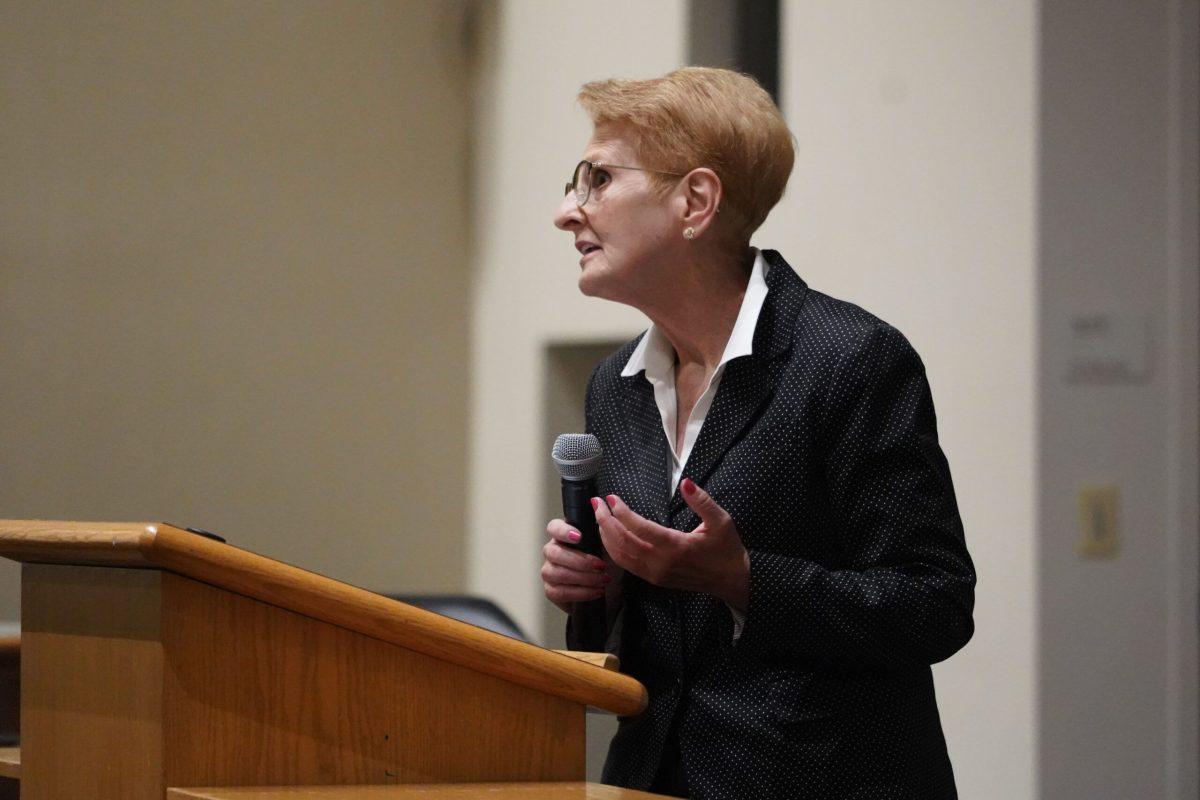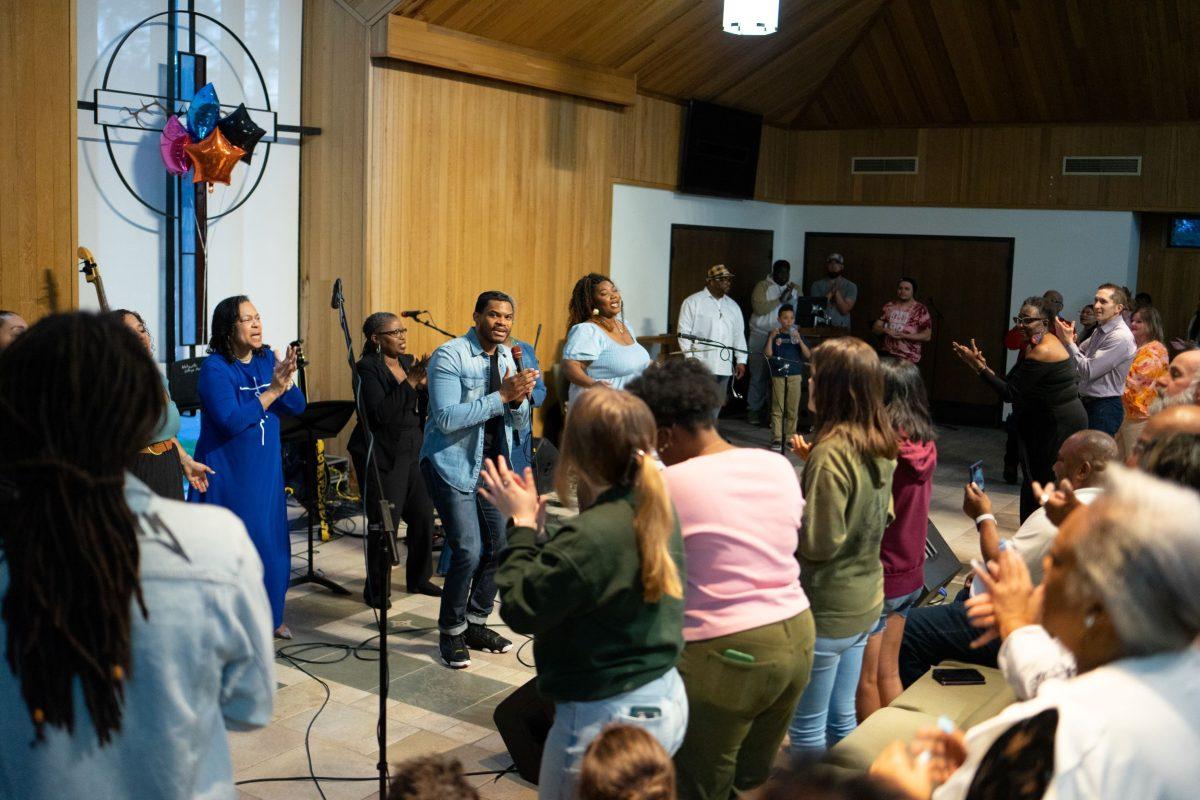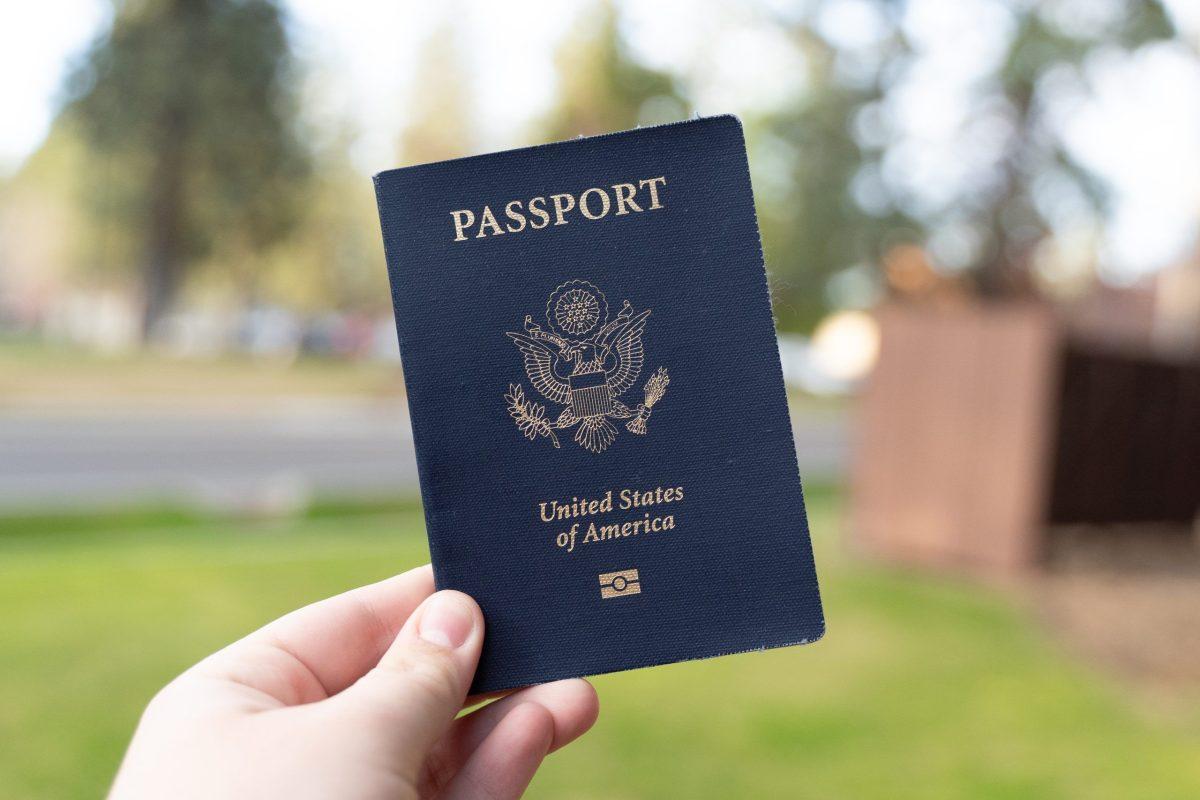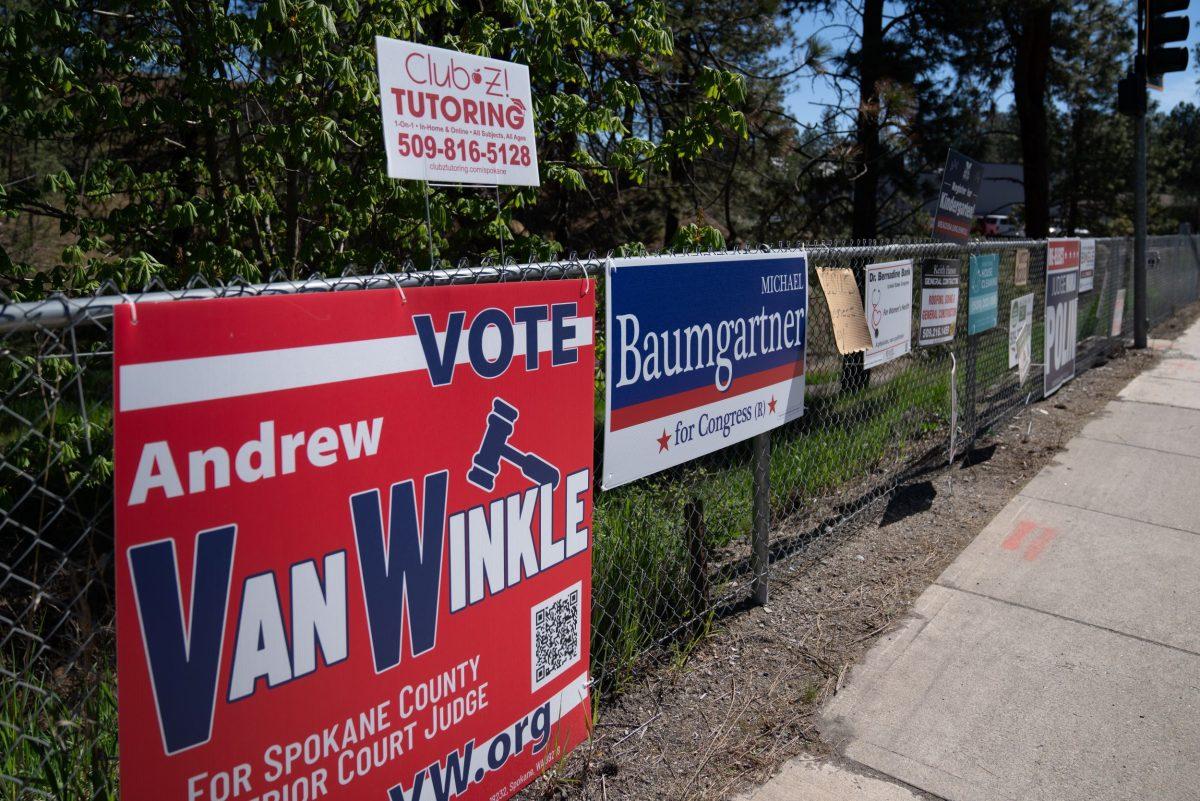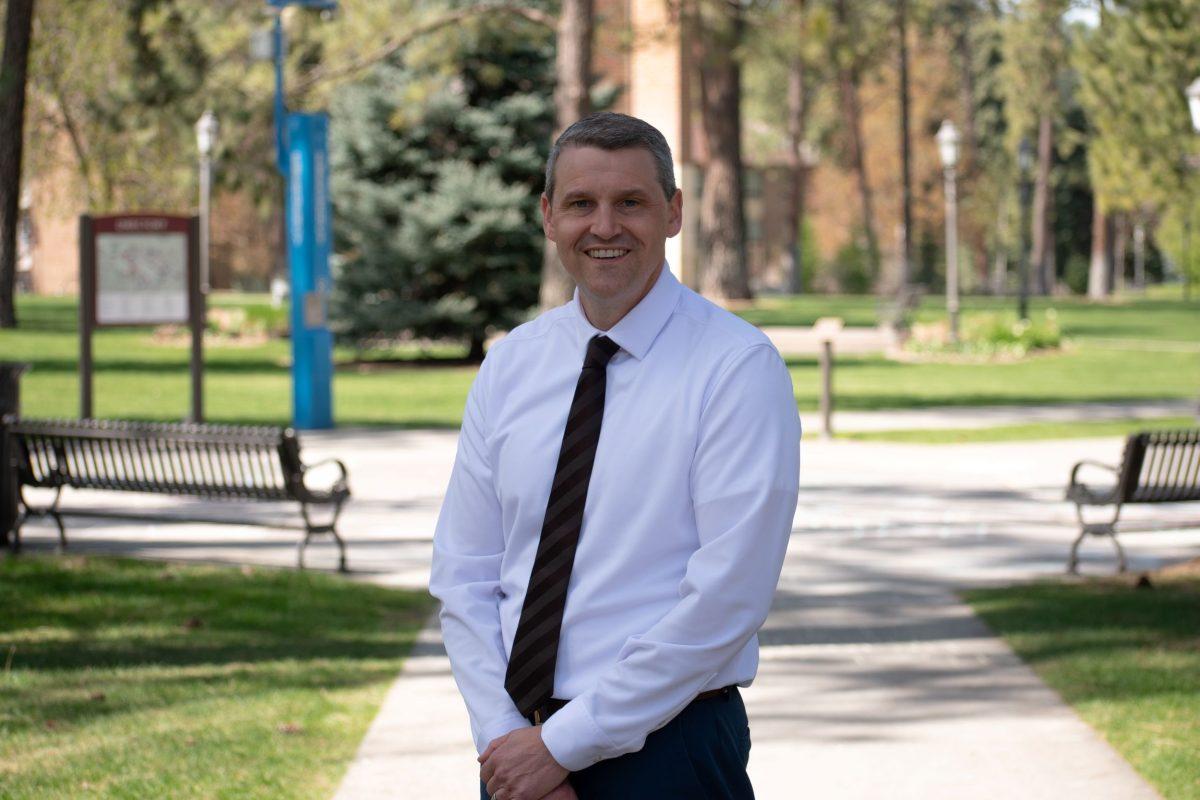
Director of the American Library Association’s Office for Intellectual Freedom Deborah Caldwell-Stone gave a public lecture in the Robinson Teaching Theatre on September 18, 2023, in celebration of National Constitution Day.
Erica Salkin*, professor of communications at Whitworth, opened the talk with the simple statement, “Forty-five words. Five freedoms.”
Salkin was referencing a central aspect of Caldwell-Stone’s talk: the five constitutional rights granted by the First Amendment. These 45 words grant everyone in the United States freedom of speech, freedom the press, freedom of assembly, freedom of religion and the right to petition the government.
“Yes, it’s the first by random chance,” Erica said. “But those of us who study it know it is first for a reason. Ladies and gentlemen, I give you: Deborah Caldwell-Stone.”
While the First Amendment protects five freedoms, Caldwell-Stone focused her talk on freedom of speech. She narrowed the discussion to the essential nature of libraries in sustaining freedom of speech and providing a foundation for democracy.
Even the judicial system has recognized how important libraries are to the United States, according to Caldwell-Stone. Judicial precedent has upheld the fact that libraries should be open and accessible, even in odd circumstances. Caldwell-Stone discussed Kreimer v. Bureau of Police for the Town of Morristown, a case that ruled libraries could not turn someone away for being barefoot; she discussed cases that have established the right of homeless individuals to use libraries; she said courts have ruled that minors can borrow books without their parent’s permission; and she said that courts have ruled that libraries are forbidden from moving books to different sections of the library if it means that the intended audience will likely not find that book when looking.
“[The] library belongs to the people, not the state,” Caldwell-Stone said.
Yet despite the courts upholding the importance of libraries, Caldwell-Stone said that many people think that if a library does not contain only their ideals, then it should not exist. This resulted in a campaign to halt diversity of opinion contained within libraries.
Because of this, Caldwell-Stone said many people are attempting to censor the types of books available within libraries, especially in recent years. This censorship has increased drastically in recent years. She provided statistics showing that in 2018, there were 347 challenges made to books and graphic novels. In 2022, there were 1,272 challenges. This is nearly a four-fold increase.
Caldwell-Stone attributed the increase to a variety of factors, including the rising belief that books will be harmful to young people, a lack of understanding of First Amendment principles, the placement of politics and religion over the right to use and access libraries and an increase in organized groups like Moms for Liberty.
To drive home the pressure that libraries are facing, Caldwell-Stone highlighted three libraries currently facing political pressure: The Dayton Memorial Library in Washington, the Samuels Public Library in Virginia and the Patmos Public Library in Michigan. According to Caldwell-Stone, the Patmos Public Library has it especially hard. After a political battle over books contained in the library, the Jamestown community voted to defund Patmos Public Library and shut it down.
This is a devastating loss for the community, Caldwell-Stone believes. Library shutdowns cause the community to lose benefits such as free internet access, computers and job support services.
Library shutdowns also take away people’s ability to access and engage with the free ideas contained within it. Libraries are not just places where one can check out a book, according to Caldwell-Stone. They help protect intellectual freedom, uphold individual autonomy and dignity, provide protection for freedom of conscience and force the community to practice tolerance. She described libraries as “anchor institutions for democratic participation … [and] forums, set aside for the free expression of ideas.”
Yet these essential forums are facing pressures to give up their purpose in the name of people who are “sanitizing” the libraries.
Caldwell-Stone recognizes that many people campaign to remove books for the protection of their children. However, according to Caldwell-Stone, students often feel harmed and excluded when wars begin over the books that are in their library. When parents try to take certain books out of schools, especially books that are focused on identity, students can feel like they do not belong if the books about people like them do not belong. She discussed how the Office for Civil Rights said that the removal of books from school may create a hostile environment for children.
Caldwell-Stone urged interested parties to take action to help libraries. She said that people could get involved in board meetings and in local politics to raise their voices against those who promote censorship.
*Disclosure: Erica Salkin serves as the adviser of The Whitworthian. She was not consulted nor interviewed for this article.

